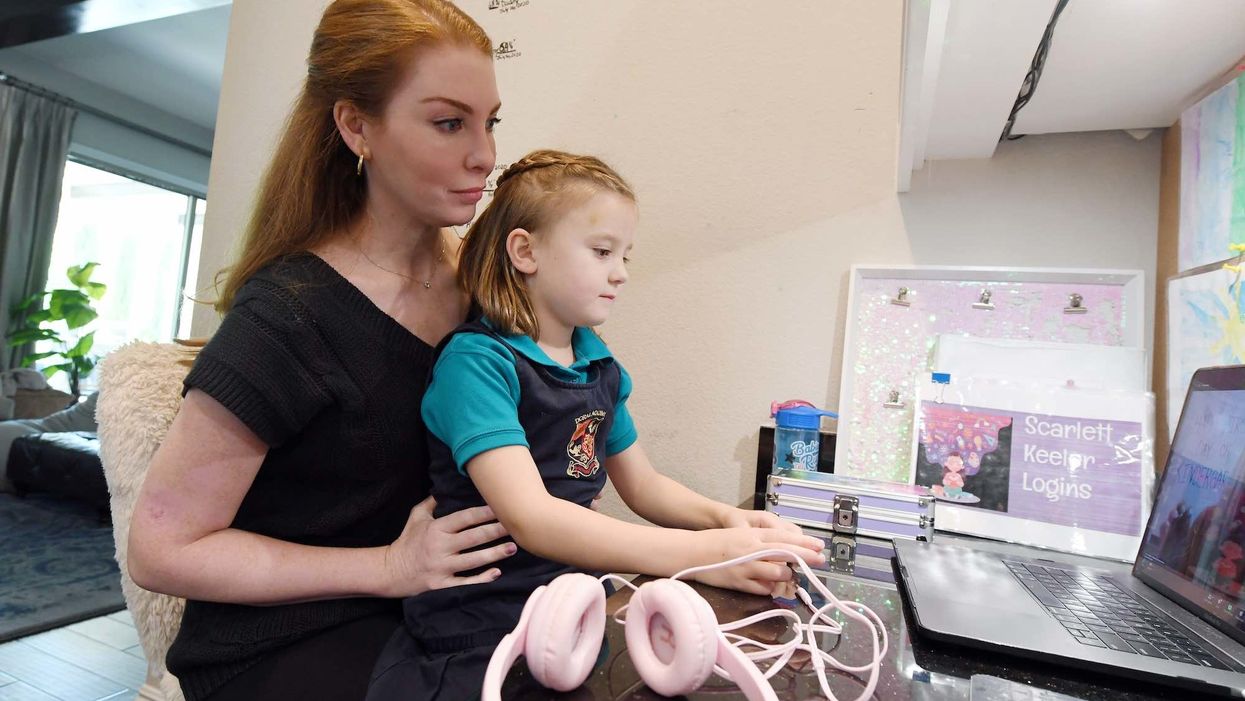
Photo by Ethan Miller/Getty Images

That's a huge hit
As debate over whether to reopen schools has raged on, most people have focused on the wisdom of sending kids back to school as the nation continues to work to get the coronavirus pandemic under control.
Folks worried about reopening are concerned about the health of students, teachers, and staff — as well as all those people's families — and want to make sure that reopening will not exacerbate the COVID crisis.
Advocates for reopening say that remote learning isn't enough: Kids need to be back in school, they say, because they learn better with in-person instruction. Those advocates also note children need the social aspect of schools and that many kids need the services and protections many schools provide.
But what about the economic impact of keeping schools closed? How much damage will closed schools have on the U.S. economy.
A report this month from Barron's examined those questions and came up with a troubling answer: Keeping schools closed may well cost the U.S. economy more than $700 billion.
The Barron's report started with an ominous note: "The only thing standing between a recovery and a double-dip recession might be the back-to-school season."
As the new school year starts, Barron's noted, 56 million students from kindergarten to 12th grade are facing all sorts of new challenges — most are going to have to use distance learning, which presents unique academic challenges, while others will face the challenge of dealing with COVID regulations within their schools.
But those challenges might just pale in comparison to the economic challenge of not returning to in-class instruction.
"The risks to reopening schools are clear — they could become a new epicenter for Covid-19," Barron's said, "but the costs of keeping schools closed could be even higher."
Just how much higher?
Barron's says the U.S. would be looking at $700 billion in lost revenue and productivity, which would be 3.5% of GDP, Axios said.
The impact closed schools will have on the economy is connected to our nation's decision to have schools act as child care so that parents can go to work. With kids at home, parents are being forced to give up work hours or quit their jobs altogether.
According to the Becker Friedman Institute at the University of Chicago, working parents account for about one-third of the nation's workforce, Axios noted.
The outlet added that child-care needs in the wake of the nation's response to COVID last March, which closed schools across the country, meant that 13% of those working parents lost their jobs or cut back their hours. And those who did not have to give up work have found themselves considerably less productive: The average working parent has lost eight hours a week of productivity with kids at home during the pandemic.
Misty Heggeness, a visiting scholar at the Minneapolis Fed, told Axios, "Even if you're lucky enough to have a teleworking situation, it's really hard to work at full capacity when you're essentially acting as a teaching assistant."